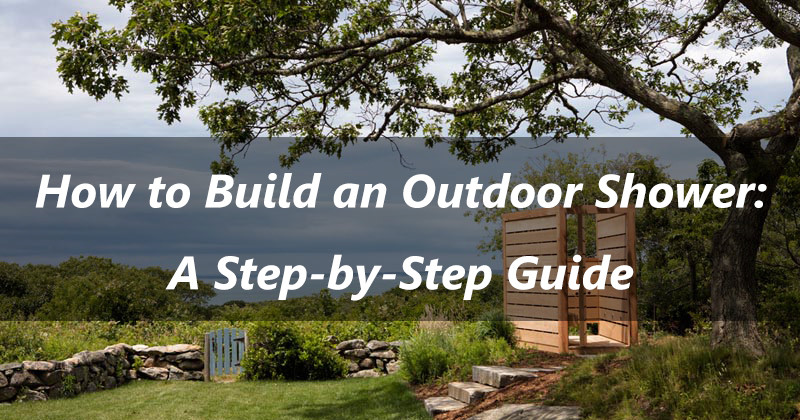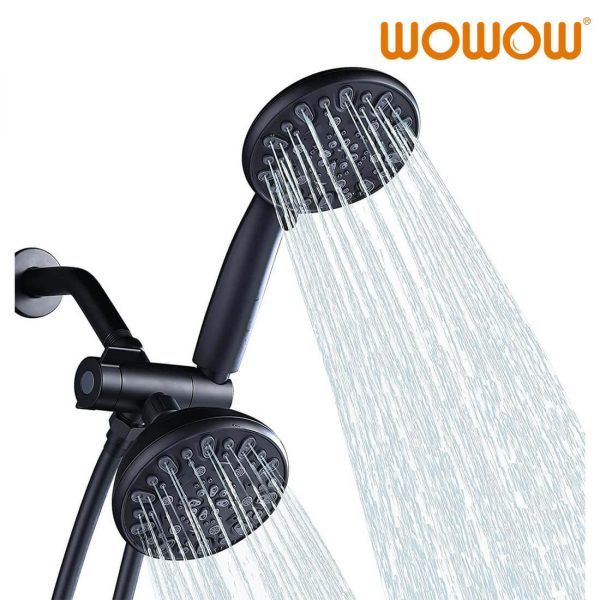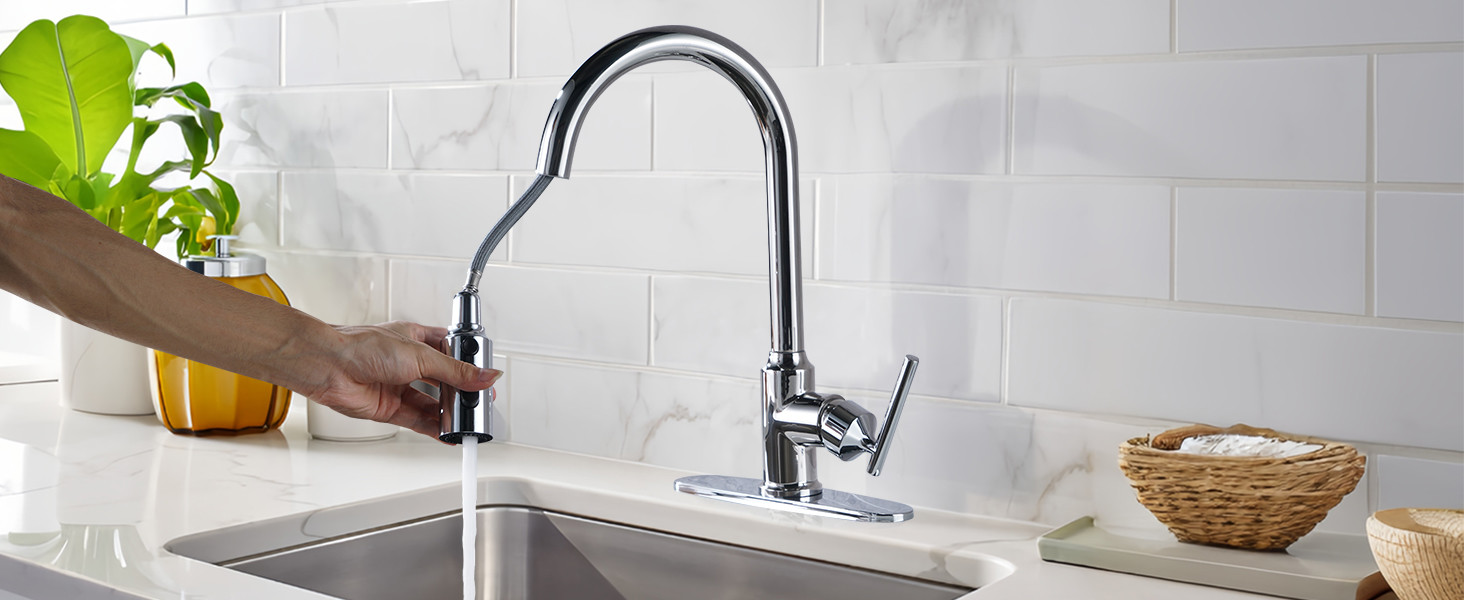
An outdoor shower is a perfect addition to your home, offering a refreshing way to rinse off after swimming or working in the garden. It’s also a great feature for beachside properties or homes with large outdoor spaces. Whether you want a simple setup for quick rinses or a more elaborate design for relaxing soaks under the sky, building an outdoor shower is a satisfying project. How to build an outdoor shower? Here’s a comprehensive guide to help you create your own outdoor shower, from planning to execution.
How to Build an Outdoor Shower
Step 1: Planning Your Outdoor Shower
Before diving into the build, you’ll need to think about a few essential aspects:
1. Location
The first decision you need to make is where to place the shower. Consider proximity to water lines and drainage. Ideally, it should be close to an existing plumbing line to make it easier to run water to the shower. Privacy is also important, so think about how visible the shower will be from surrounding areas. Installing it near a wall or fence could help provide some natural privacy.
2. Water Supply
There are two main types of water supplies you can use for an outdoor shower: cold water only or both hot and cold water. If you live in a warm climate, cold water may be sufficient. But if you want to enjoy your shower year-round, running hot water might be necessary. Connecting to your home’s hot water supply may require professional plumbing assistance, especially if your house’s water heater is located far from the shower area.
3. Drainage
Proper drainage is essential to avoid water pooling in your yard. Depending on local building codes, you may be able to use simple gravel for drainage or need to connect your outdoor shower to your home’s drain system. Be sure to check with your local authorities to ensure your shower is compliant with regulations.
Step 2: Gather Materials
Here’s a basic list of materials and tools you will need for building an outdoor shower:
Materials:
- Shower fixture (head, handle, and valve)
- PVC pipes and fittings (for cold and hot water supply)
- Teflon tape
- Pressure-treated wood or outdoor-rated materials for the shower structure
- Concrete mix (if installing a permanent base)
- Gravel for drainage
- Privacy screens or fencing (optional)
- Outdoor-friendly flooring material (e.g., decking boards or stone pavers)
Tools:
- Measuring tape
- Shovel
- Power drill
- Pipe cutter or hacksaw
- Wrench set
- Level
- Screwdriver
- Caulk gun
Step 3: Setting Up the Plumbing
The most complex part of building an outdoor shower is managing the plumbing. Here are the general steps involved:
1. Shut Off the Water
Before beginning any plumbing work, turn off the water supply to avoid flooding or leaks.
2. Install the Pipes
If you’re connecting the outdoor shower to your home’s water supply, dig a trench from the house to the shower site to bury the water line. Use PVC piping that is designed for outdoor use. For hot water, you’ll need to install separate pipes to carry both hot and cold water to the shower fixture.
If you’re only using cold water, a garden hose attachment can simplify the process. Some outdoor shower kits are designed to hook up directly to a garden hose, making the plumbing far less complicated.
3. Attach the Fixtures
Once the water lines are in place, connect them to the shower fixtures. Use Teflon tape on threaded connections to prevent leaks. Secure the showerhead and any controls, ensuring everything is properly aligned. You’ll want to test the water supply at this point to make sure there are no leaks before proceeding with the rest of the build.
Step 4: Building the Shower Enclosure
After plumbing, the next step is to construct the shower’s structure, including the base and walls.
1. Build or Install the Base
For the shower floor, you have several options. A concrete pad provides a solid, permanent base, but wooden decking or stone pavers can offer a more natural look. Make sure the floor material is slip-resistant and that it allows for proper drainage.
If you’re installing a concrete base, mix the concrete and pour it into the area you’ve prepared, ensuring it’s level. Allow it to set for 24-48 hours. For a gravel drainage system, dig a shallow pit and fill it with crushed stone or gravel to help filter the water into the ground.
2. Install Privacy Walls
For privacy, you can build a wooden frame around the shower or use pre-made privacy panels. If you’re building your own enclosure, pressure-treated wood works well since it can withstand moisture. Space the boards slightly apart to allow air circulation while still maintaining privacy. Bamboo, corrugated metal, or lattice are other materials you could consider for a unique look.
Alternatively, some people opt for more open designs with simple partitions or curtains. The choice of enclosure will depend on your desired aesthetic and the level of privacy needed.

Step 5: Finishing Touches
With the plumbing and structure complete, it’s time to add some final touches to make your outdoor shower more functional and aesthetically pleasing.
1. Install Hooks and Storage
To enhance the usability of your outdoor shower, install hooks for towels or swimsuits. You can also add shelves or racks to store soap, shampoo, or other bath essentials. Make sure the materials you use are weather-resistant to avoid damage from the elements.
2. Lighting
If you plan to use the shower at night, consider adding outdoor-rated lighting. Solar-powered lights are a great option since they don’t require any additional wiring.
3. Landscaping
Enhance the look of your outdoor shower with landscaping. Surround the area with plants, stone paths, or other natural elements to make it blend seamlessly into your outdoor space. Plants that thrive in moist conditions, like ferns and grasses, are ideal choices to plant around the shower.
Step 6: Maintenance and Care
Once your outdoor shower is up and running, it’s essential to maintain it properly. Check for leaks in the plumbing regularly and ensure that the drainage is working efficiently. If you live in a cold climate, winterize the shower by draining the pipes and disconnecting any water sources to prevent them from freezing.
Conclusion
Building an outdoor shower is a great way to add luxury and convenience to your outdoor space. With the right materials and some careful planning, this project is entirely achievable as a DIY endeavor. Whether you’re rinsing off after a swim or enjoying the refreshing outdoor air, your new shower will become a favorite feature of your home!
 WOWOW Faucets
WOWOW Faucets





您好!Please sign in